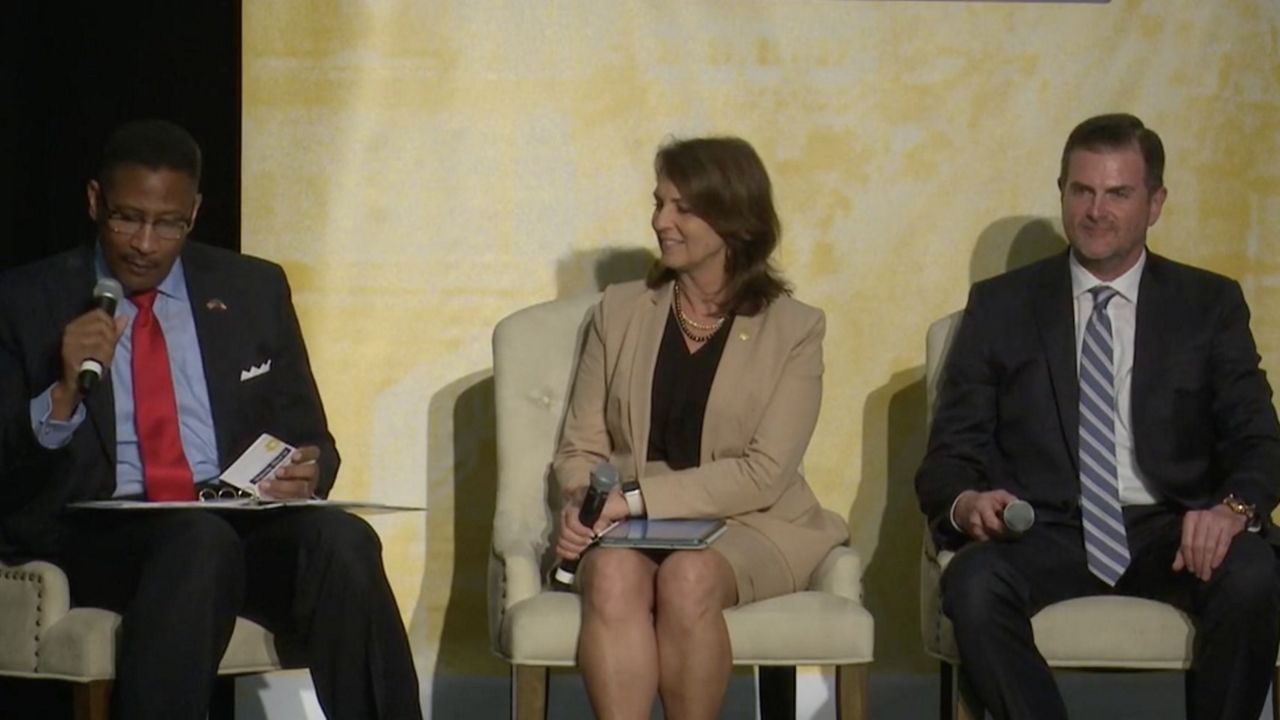AUSTIN, Texas — An updated special education funding formula is being coupled with school choice in a bill filed last Friday by two senators who served on an interim committee to review funding special education.
Sens. Paul Bettencourt, R-Houston, and Angela Paxton, R-McKinney, have filed Senate Bill 1474 to address the needs of special education students in the state. Texas has been the subject of scrutiny from the U.S. Department of Education in recent years for failing to identify and serve children with special needs.
“SB 1474 dramatically bolsters support for special education students in three major areas,” Bettencourt said in an announcement of the bill. “It’s an important recognition that these students need targeted help to maximize their educational outcomes. The SPED Commission has a year’s worth of great testimony to draw on these major recommendations.”
The SPED Commission would be the seven-member Texas Commission on Special Education Funding, chaired by Stacey Neal Combest, the mother of a child with intellectual disabilities and a certified mediator. The committee's biggest and first recommendation is a transition in special education funding to a formula tied to the intensity of services the student needs and receives, with seven identified service tiers.
The second component is choice. Gov. Greg Abbott established a pilot education savings account program for the families of special education students during the initial COVID-19 pandemic. The pilot program provided $1,500 grants to the parents and caretakers of children with special needs. Those grants were used to provide additional services or support to families with limited access to the classroom.
Abbott is currently touring the state on what he calls a Parent Empowerment Tour, touting the benefits of state-funded education savings accounts as a way to give parents more input into their children’s education. He wants to take SSES and expand the optional grant to all children.
“In the state of Texas, I created education savings accounts for special needs students, and the legislature liked it so much, they passed a law with bipartisan support and a supermajority to make sure it would continue,” Abbott said during a speech in February. “Now what we need to do this session is to expand that program to provide every parent in the state of Texas with the ability to choose the education option that is best for their child.”
The grant is not referred to as an education savings account on the Texas Education Agency’s website. Instead, the program is referred to as Supplemental Special Education Services, or SSES. The grant was available to any child enrolled in Texas schools requiring special education services. The webpage also includes a list of approved vendors for the grant, many with adaptive devices, books and products that might not be available to children in the traditional public school classroom.
Skeptics of Abbott's proposal, especially advocates of traditional public schools, say a one-time $1,500 grant for incidentals is nothing like a $7,200 voucher that would allow a public school student to transfer to a private school.
The Texas Commission on Special Education Funding took testimony last November on the idea of education savings accounts. Groups such as Disability Rights Texas opposed the model as a solution to funding, saying parents who would use such accounts to transfer their children to private or parochial schools would lack the legal protections of the public school system. Specific federal laws, such as the Individuals with Disabilities Education Act, protect the rights of families with children with special needs.
The commission on special education funding closed out its recommendations at the end of last year. The unanimous vote of the committee approved the so-called service intensity model. A recommendation to increase capacity for special education services through non-public school day programs passed on a vote of 5-2. A vote to consider education savings accounts passed on a vote of 4-3.
Senate Bill 1474 would ramp up the efforts of the SSES, providing a $7,250 grant per year per child. Funds in the program would have to be used to pay for school tuition, textbooks, fees, meals and uniforms at private school.
A third component of the bill would create a grant to allow TEA to recruit retirees to return to teach special education in public schools. Special education is frequently a critical shortage area for teachers in Texas, along with math and science.
Paxton expressed her support for school choice during a session at the Texas Public Policy Foundation’s Policy Summit last week. Paxton, who taught math in both public and private schools, returned home to homeschool her four children during their early years in elementary school. Eventually, the children transferred to a Christian school where Paxton also taught, she told the audience.
“And all of our kids graduated from there. They all found their niche,” Paxton said. “We were able to do that we wanted to do, but the reason we were able to do that with four kids is because I was able to help pay for it with my teaching for their tuition. Even with the discount we got, my salary didn’t quite get us there.”
Those were options her family could have, Paxton said. It’s not an option everyone can have.
“We had a way to get there, but it’s always been something I’ve thought about, not everybody can,” Paxton said. “We’re having a conversation about letting parents have more choices, because I know it made a difference for me. We made a difference for our children, and it’s going to make a difference for my grandchildren.”



